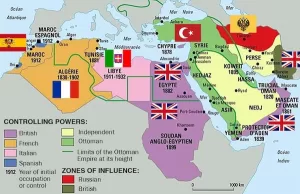What connects a decade-long seed war, a sensational agri-patents case, a multi-crore black market and a potential health disaster? A greyish bullet-sized seed of the Bt cotton variety, a genetically modified (GM) cotton seed that has courted controversy since the late nineties.
Herbicide-tolerant Bt Cotton is an unapproved GM seed from Monsanto/Bayer which has spread across South India, covering up to 25% of the total area under cotton cultivation. Over 75 lakh 450-gram packets of the seed are in circulation in the four southern states alone, and, experts predict, this contamination will hit North Indian farmers soon. Yet agricultural minister Narendra Tomar, in a recent statement said there is “no risk reported”.
Since 2017, the legal seed companies have reported losses between Rs.200-300 crore annually due to this contamination, largely because herbicide-tolerant (HT) Bt seeds get black-marketed.
How did this unapproved, possibly hazardous, and patented seed illegally find itself in agricultural fields and on our plates? The tale of HTBT Cotton is a gnarly one, consisting of biological contamination and corporate sabotage. In 2008, trait developer Monsanto (now Bayer), through its Indian subsidy, Mahyco, imported GM-Bollgard II cotton seeds called Roundup Ready Flex (RRF) with the HT trait. Roundup is a glyphosate-based herbicide (glyphosate + formulants) and a known carcinogenic. US courts ordered Monsanto/Bayer pay upwards of $10 Billion to settle ongoing cancer trials.
The World Health Organisation (WHO) and independent scientists and courts confirmed the toxicity of glyphosate (-based herbicides) as they contain heavy metals such as arsenic. The RRF varieties are tolerant to Roundup. It means that once Roundup gets sprayed in a field, all other plants except the RRF variety will die. Bayer has already announced that it will stop selling Roundup in the US.
The Genetic Engineering Appraisal Committee (GEAC) gave Mahyco approvals to conduct large-scale field trials for HTBT cotton seed in Punjab, Haryana, Maharashtra, Karnataka and Tamil Nadu. Within three months, the GEAC confirmed that the HT trait had escaped into the environment. There are reports of illegal HTBT cotton seeds getting sold in Gujarat.
The United States Department of Agriculture (USDA) lays down specific instructions to prevent contamination, but Mahyco and seed breeders around its seed production area ignored these limits.
Once the trait escaped, it began contaminating seeds in the cotton belts. HT traits do not have approval for cultivation in India. After eight years of open field cultivation, on 5 July 2016, Mahyco withdrew its application from the GEAC of the ongoing HT-BG2 cotton bio-safety trails. In September 2017, there were reports that HT cotton was getting illegally planted and that about 5-10% of the cotton was of the unapproved variety.
The Prime Minister’s Office was alerted, and a committee was formed to curb this biohazard as a public health concern. Still, in India, cottonseed oil is freely blended with refined oils. The public was not alerted to the risks of consuming HTBT cottonseed oil. Over 97% of cottonseed in India is Bt cotton.
The illegal introduction also enters the breeding material and parent lines of the seed companies. Each year, the legal cottonseed economy gets disrupted as a result. All Indian companies that are selling GEAC-approved BG2 cottonseeds are the first victims. Per the Seeds Act, 1966, fields that cause trait contamination will be penalised. Instead of the polluter, the farmers whose crops get polluted have to pay.
By 2019, the Andhra Pradesh government had suspended the licence of 13 seed companies for the alleged presence of the HT gene. The Maharashtra government issued show-cause notices, too. In both states, FIRs were lodged and action is being taken against licensed seed companies.
Importantly, of the several lots tested, just one or two were found with the HT gene. While illegal HT seed breeders continue to contaminate and sell HTBt cotton, licensed Indian companies are made scapegoats and harassed. They are victims, not culprits.
A report by the Field Inspection and Scientific Evaluation Committee (FISEC) found that the “14 illegal hybrids collected can be grouped into two major groups, indicating very narrow genetic bases reflecting organised base activity by a couple of companies.” Further, it stated that studies have also ruled out the involvement of smuggling of seeds…as genotypes found were native in India.” This proves the innocence of the Indian seed sector and points towards the role of a “couple of companies”.
So why has the government not taken strict action against these companies and upheld the Biodiversity Act? One answer is the active propagation of HTBT varieties by public figures such as Anil Ghanwat, president of the Shetkari Sanghatana and member of the Supreme Court committee on farm laws. This organisation has publicly supported the use of HTBT seeds from Maharashtra to Telangana. His organisation calls the use of these unapproved seeds a “seed satyagraha”, though it damages the biodiversity.
History has a strange way of repeating itself. As contamination was how Bt cotton 1 got introduced into India way back in 1996 as well. The Navbharat case bears testimony to this. It is then that Monsanto entered the Indian market. And now, Monsanto/Bayer have a monopoly over cotton seeds.
Ghanwat and his organisation are treading a dangerous path that may destroy the health and legal seed businesses. The Indian government needs to take strict action to curb those making a mockery of the law.
Such violations could have grave public health implications as HTBT cotton seeds without bio-safety tests get blended into vanaspati oils without any checks. The popularity of cottonseed oil is growing as it is a less expensive alternative. At present, around 99% of cotton seed in India is GM [not HT]. And from namkeens to samosas, virtually all contain cottonseed oil residues. But most consumers do not know that this oil is most likely GM, and further that it could be of the HT variety. FSSAI has also failed to label GM/HT Bt varieties. If this goes on unchecked, India could face a major farm and health crisis—one that is easy to avert.
(Indra Shekhar Singh is an independent policy analyst and writer on agriculture and the environment. Article courtesy: Newsclick.)




